If you don’t have eczema, you might not know what it’s like to be kept up all night by itchy skin, or how it feels to barely be able to move your arms because each motion might open a new crack that oozes blood.
Eczema is not life-threatening, at times it can be undetectable, but that doesn’t mean it’s not serious and doesn’t need to be addressed and acknowledged as such.
According the the National Eczema Association, 30 million people in the United States are dealing with some form of eczema, and, as they will tell you, flare-ups can be just as limiting, frustrating, and debilitating as many other diseases.
If you don’t have eczema, you might not know the impact it can have, but awareness is at the root of every solution. Scientists are working to learn more about and understand the causes of eczema, and while they do, there are proactive steps people with atopic dermatitis can take to feel confident that they are doing all they can to cope with the disease.
Understanding Eczema
Kate: “I think that the biggest misconception about the condition is that it’s ‘just a rash.’ I feel like people don’t take it seriously. Even when I look up research on it, most is just targeted to children.”
Atopic dermatitis is the most common form of eczema. Although it is most likely to occur in childhood, it often persists into adulthood.
The most obvious sign of it is dry itchy skin, but other symptoms include oozing, swelling, redness, crusting, thick skin, and scaly areas. Flare-ups differ from person to person, and can effect every part of the body, but some of the most common areas are the neck, elbows, hand, knees, face, neck, and ankles.
While great deal about eczema remains a mystery, scientists do know that it is an immunological disease that causes extreme sensitivity of the the immune system causing it to react to even the smallest of irritants and allergens. These reactions cause inflammation under the skin which lead to flare-ups. However, the rashes are only a visible symptoms of the disease.
The Vicious Cycle
Tia: “It’s gonna itch, your gonna scratch, it’s gonna itch again, you’re gonna scratch again. It’s like the itching does not stop.”
When individuals have atopic dermatitis, the immune cells in the deep layers of the skin send signals to the surface, which causes the rash. Scratching can cause breakage of the outer layer of skin, which opens the door to viruses, germs and other allergens. The more frequently you scratch, the more weaker your skin barrier becomes, and the more the alien bacteria invade. In response, your immune signal sends more signals, leading to even more redness.
Eczema On The Face
Zsa Zsa: “Getting eczema anywhere is bad, but I think that one of the worst places is when it attacks my face. You know that’s the first thing people see when they look at you. I look like a monster.”
Although the exact causes of eczema are difficult to pinpoint, most experts believe it is a combination of genetic and environmental factors. While eczema is not curable there are certain things that can worsens the symptoms, such as household products like synthetic fibers and soap, dust born allergens, stress, and cold weather.
Ezcema on the face can be especially challenging, because it is so difficult to conceal, and the skin on the face is extremely delicate. According to Silpi Khetarpal, MD and dermatologist at the Cleveland Clinic and clinical assistant professore of medicine at Case Western Reserve University, “The most common areas for eczema on the face are the eyelids and the lips, given how thin and sensitive the skin is in these areas.”
If you have eczema, there are a few key ingredients in cosmetic problems that you may want to look for. Amanda Doyle, MD, New York City based dermatologist says, “Ceramides, which are part of the skin barrier, are a key component to treating eczema.” Ceramides trap in moisture that can help to hydrate dry skin associated with eczema flareups, and many can be bought at local drug stores, relatively affordably.
Eczema sufferers should also use caution when applying makeup. Concealers can be effective in minimizing the appearance of eczema, but they can also lead to further irritation. If you are planning to use makeup, a liquid foundation is preferable to powders, which tend to absorb oil and worsen existing dryness. Khetarpal explains, “The liquid is more moisturizing, so it can help to accelerate the healing process.”
If the case of facial eczema is extremely severe, you may want to consider an over-the-counter topical steroid such as 1% hydrocortisone, which may help with short term irritation and itching, however, Dr. Doyle advises limiting usage to two days and avoiding contact with the eyelids.
Flareups can be kept to a minimum by eliminating fragrance-containing soaps, detergents, and moisturizers, and sticking with a mild, fragrance free facial cleanser for sensitive skin. Says Doyle, “Less is more. People often want to apply all kinds of things when they get these types of rashes on their faces, but it’s really best to use minimal, gentle products that rehydrate the skin, so it can heal itself.”
Eczema On The Hands
Rene: “Eventually, my skin will literally split, sometimes with blood. It’s so dry that it feels like there’s a shell on my skin.”
“Dishpan hands.” You may have heard the expression used to refer to a rash that results from frequent dishwashing. Atopic dermatitis would be the more scientific term. As you might imagine, the hands are an especially inconvenient place for the symptoms of eczema to show up, but rashes have little compassion.
“Hand eczema has a huge impact on people’s lives when it’s severe, or even in mild cases,” according to Ross Levy,MD and chief of dermatology at Northern Westchester Hospital Center, and while the jury is still out on the exact causes, there is some speculation.
Gil Yosipovitich, MD and professor of dermatology at the University of Miami School of Medicine says, “It could happen easily from washing your hands or changes in temperature in people who are in a cold environment.”
Contact dermatitis is a type of hand eczema with a direct link to irritating substances, such as chemicals, and is most likely to affect professionals whose hands come into contact with chemicals on a daily basis, or who wash their hands frequently. Common targets include nurses,hairdressers, cleaners, plumbers, an construction workers.
Dyshidrotic eczema is often triggered by moisture stress, and contact with metals such as cobalt or nickel, and causes itchy blisters not the hands, feet, fingers, and toes.
The best way to avoid and treat hand eczema is to find out what is triggering the condition and avoid coming into contact with it if possible. It is also advisable to consult a dermatologist, who may suggest topical treatments.
Other guidelines to follow include:
Limiting contact with water, especially soapy hot water. Try to wash dishes in a dishwasher and use lukewarm water and fragrance free soap to keep hands clean
Apply moisturizer immediately after cleaning hands and in regular intervals throughout the day.
Avoid antibacterial soaps. They are more likely to contain chemicals and alcohol that can trigger a flare up.
Tend to any cuts on the skin before chemicals can enter and cause irritation.
What Not To Do If You Have Eczema
Eat Trigger Foods
Janet: “My eczema is closely related to my celiac disease and food allergies. For example, is I eat gluten, and then get exposed to the sun, I will develop diarrhea, headaches, and a bad rash on my arms.”
Although most flare ups are not caused by dietary factors, there are certain foods and drinks which can exacerbate them. However, it can be difficult to weed out the guilty parties. According to Dr. Whitney High, MD and professor at the University of Colorado School of Medicine, keeping a food journal may be a good way to pinpoint which food is responsible for your breakout. If you think you have found the food, try eliminating it from your diet and see if it makes a difference.
Let the Condition Take Over Your Mind
Phil: “The condition is chronic, and in addition to the external suffering, it can be taxing on your mental and physical stress levels. ”
Even though stress is likely to set off an eczema flareup, it’s a factor that many doctors fail to consider. Dr. High attributes the tendency of patients’ conditions to be more bothersome at night to the lack of distraction associated with the evening hours. “It’s the time of the day when it’s quiet. You’re not going to feel itchy when you’re going a million miles an hour at your job. You don’t have time to plug into all those body sensations.”
Take a Hot Bath
Phil: “There are so many factors I’ve identified as my ‘triggers for my eczema, and I work hard to avoid them.”
Hot baths make everything better, right? Not eczema. If you have atopic dermatitis spening a long time in a hot bath can be one of the worst things you can do. Try to keep water lukewarm and your soak time down to no longer than 15 minutes to prevent skin from over drying.
Wear Wool
Rene: “It’s being in constant pain or discomfort all the time. And it feels like, after a whole, that there’s nothing I can do about it.”
Abrasive textures, like synthetic fibers and wool are likely to irritate skin. Dr. High advises a kinder, gentler choice of material , such as loose cut cotton which won’t rub skin. Also, wash new clothing before wearing it; retain dyes can trigger flareups.
What Not to Say to A Person With Eczema
Karina: “It’s really a frustrating thing when you’re a kid, and you don’t even understand it much yourself. It’s really hard to be confident”
Sometimes people think they’re trying to help, other times, they just can’t help themselves. Either way, there are a few things people with eczema do not want to hear, and here are some of them.
“At Least It’s Not…..”
Karina: “What people have to understand is that just because it’s not life threatening, doesn’t mean it’s totally benign.”
Do not think you are reassuring a person with eczema by reminding them how lucky they are that they don’t have something worse. Eczema requires constant self care, the mindfulness, and treating symptoms can be challenging.
“You Should Start Using Antibacterial Soap”
According to Dr. Yosopovitch, many people think eczema is a sign of poor personal hygiene, but the fact is, eczema has nothing to do with cleanliness, of lack thereof. In fact, most antibacterial soaps can aggravate symptoms and make them worse. Instead, Yosopovitch advises his patients to use gentle fragrance free cleansers and moisturizers to keep skin hydrated and repair the skin barrier.
“Have You Tried This Medicine?”
Karina: “People say, ‘Have you tried this medicine?’ and it’s something you tried four times before.”
What many people fail to understand about eczema is that most people who have it have tried everything in the book. There’s no cure for eczema and finding treatments that work can be frustrating and not something sufferers are eager to discuss.
Home Remedies for Eczema
Coconut Oil
According to Dr Jeremy Fenton, MD and board certified New York City dermatologist, “The most common cause of an eczema flare is dry skin. Coconut oil can be a great moisturizer, and may even have some antibacterial and anti inflammatory effects. People with eczema tend to have a higher load of bacteria on their skin, and that bacteria can make eczema worse.
Use A Humidifier
Dry air in the house equals dry skin on for body, especially in the cold weather when indoor heating sucks moisture from skin. A cool mist moisturizer can prevent this.
Take A Pass On The Alcohol
While specific diets and eczema do not seem to have much of an association, inflammation and eczema do. Dr. Fenton recommends swapping out the alcohol, which crates inflammation in the body that can trigger a flareup.
Oatmeal Baths
Although hot baths are not a good idea, oatmeal ones can be. Experts say oatmeal can have a calming effect on dry, itchy skin- just keep the water temperature to lukewarm.
OTC products
Antihistamine, such as benadryl, calamine lotion, and non-prescription hydrocortisone creams can all help to soothe eczema symptoms.
While there is no cure for eczema, there are ways to deal with it, and one of the most effective ways is by talking about it. Although the physical treatments may still be beyond the grasp of science, understanding eczema and knowing how to deal with it is a step we can all take toward making the future a brighter and more comfortable place for those who struggle with the condition.

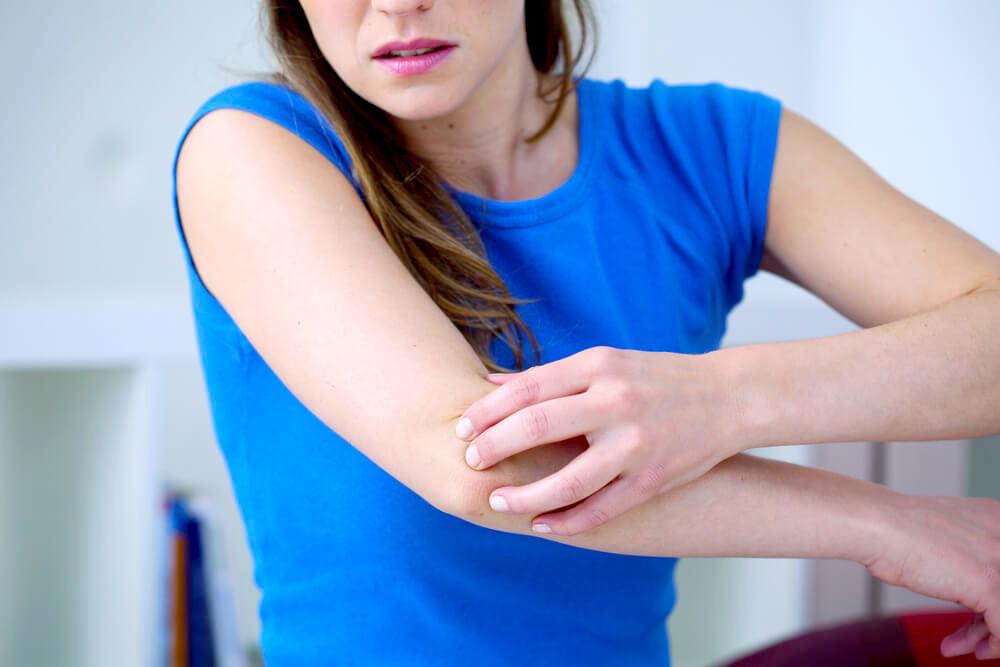
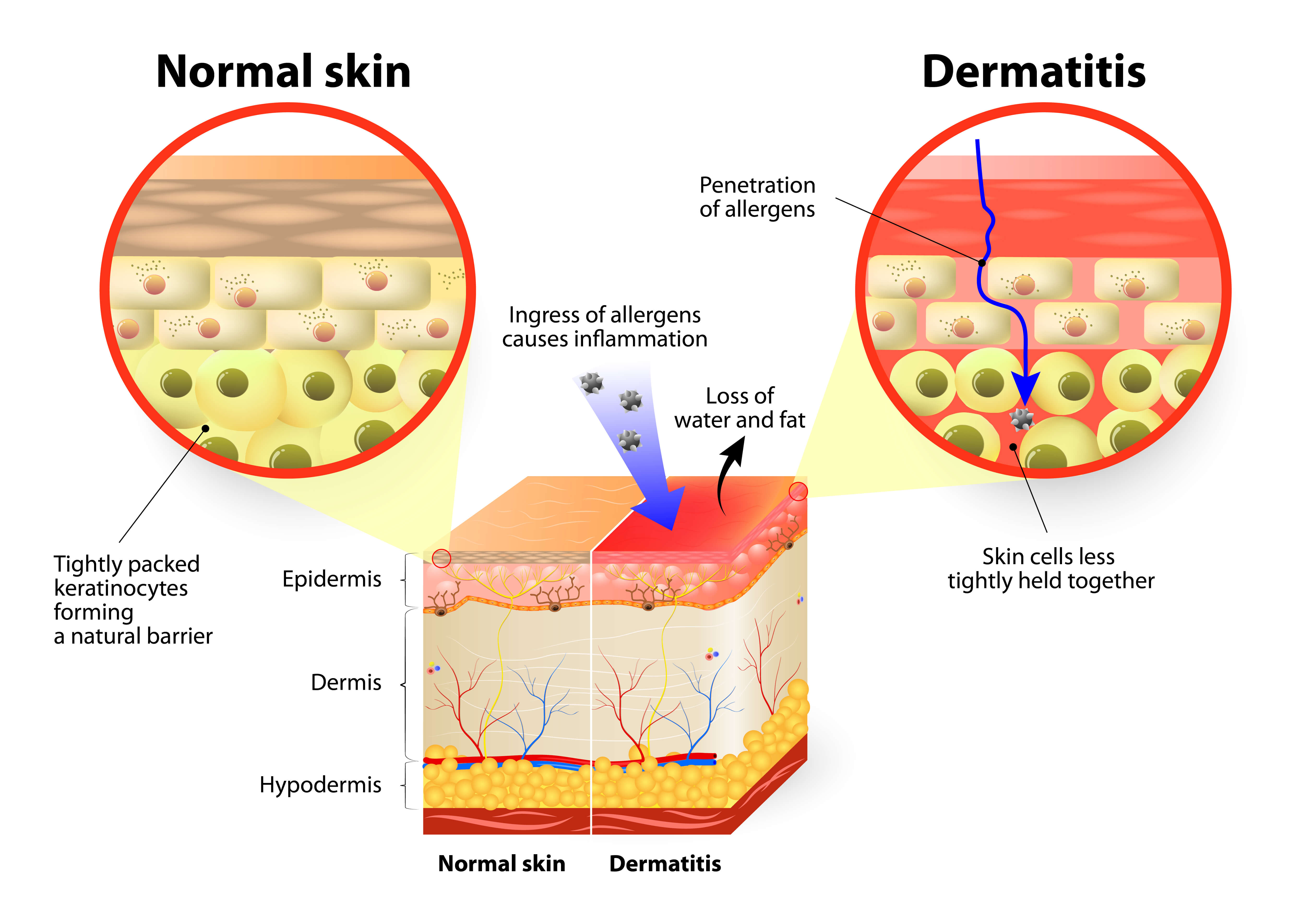
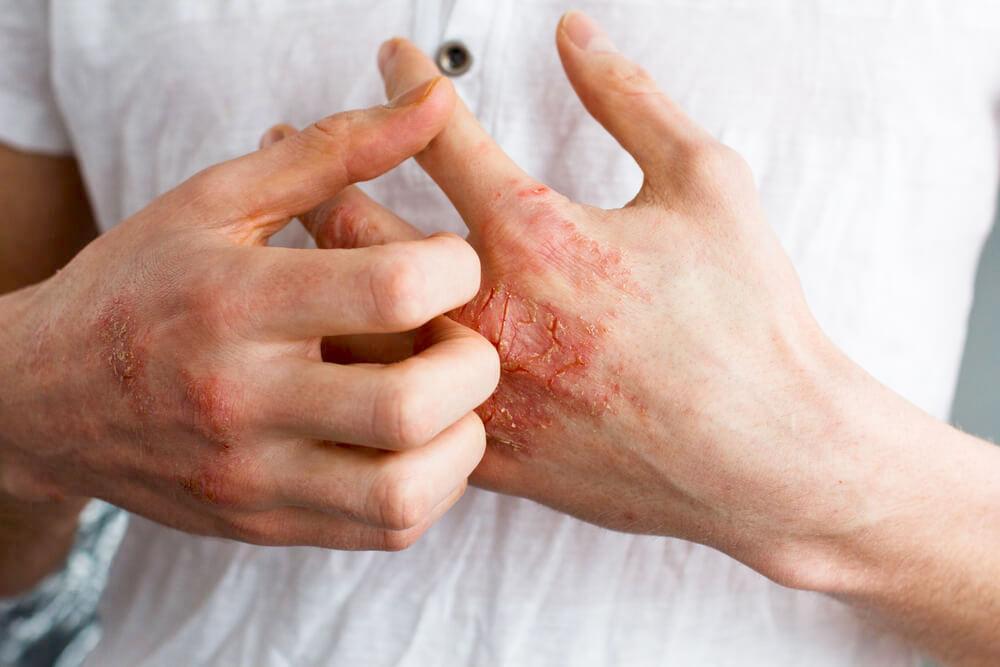
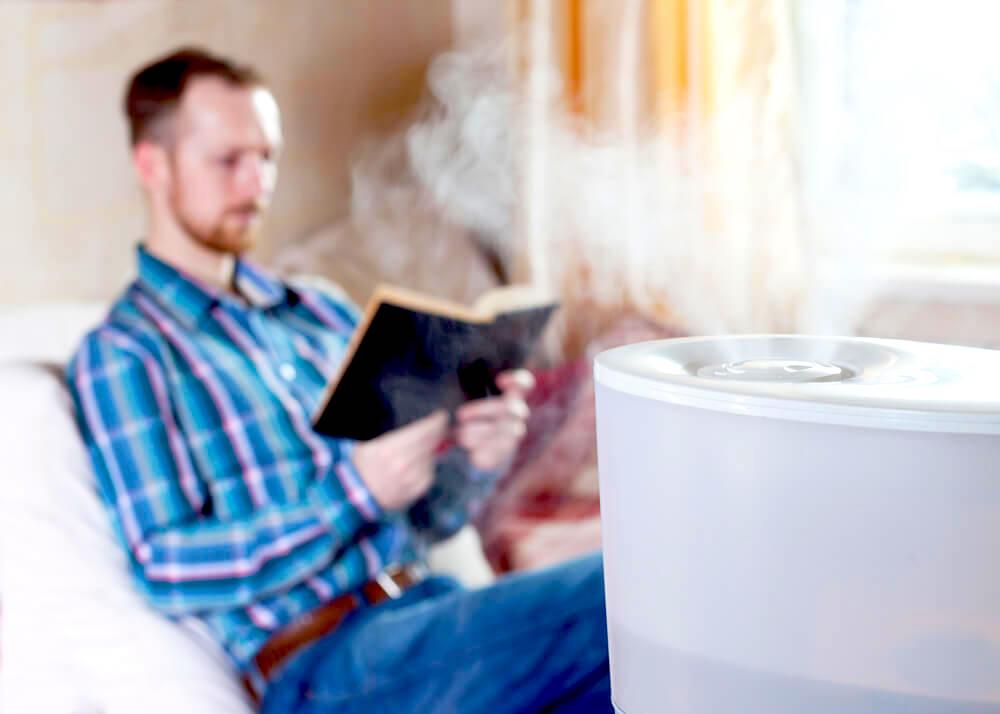
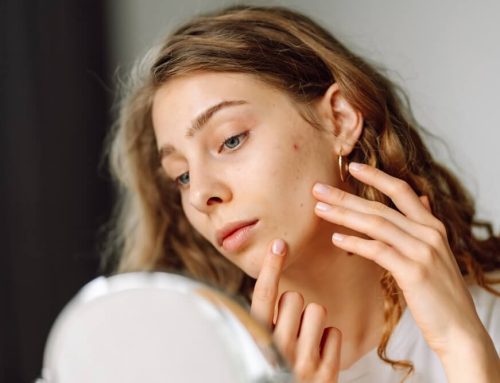
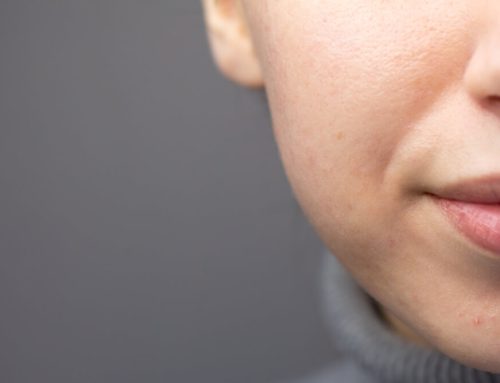

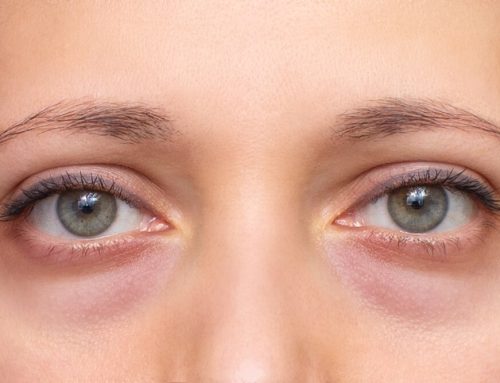
Leave A Comment